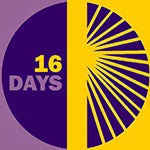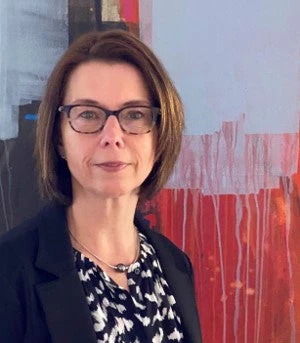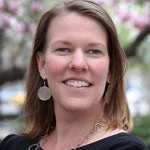Stuffed animals line the window sill, toys crowd the room’s perimeter, children’s crayon drawings depict a loss of childhood.
In this therapy room and throughout Nairobi Women’s Hospital, a 15-member-strong gender-based violence team treats and counsels the women, men and children who much more often than not, are the victims of horrific sexual violence.
There is enormous demand for the services the team is providing, so they put in long hours, unwilling to turn anyone away. Given the nature of their work, they have few moments of peace. They shudder as they tell us about some recent victims, the oldest and youngest they’ve seen: a 105-year-old woman and a one-month-old baby.
Since 2001, when the hospital opened and then grew to include four other health facilities, they have treated more than 32,000 survivors, plus 10,000 more in post-election and other crisis situations. These survivors require at least six months of treatment, and often more in cases of child abuse. It’s a long path for anyone, anywhere, to start and take, but especially for those in countries where access to quality primary health care is limited or unavailable, let alone treatment and counseling for gender-based violence.
The hospital’s work isn’t confined to the hospital walls. Counselors from its Gender Violence Recovery Center routinely reach out to surrounding communities—including schools—to work with survivors, some of whom don’t realize that they’ve been abused until they learn that violence shouldn’t be the norm. In the hospital, the health workers they’ve trained to be sensitive and responsive to survivors follow special instructions for triaging these survivors, including photographing injuries and testing DNA samples to provide evidence to Kenyan authorities. In the halls of the legislature, they’re working to change the laws to ensure that survivors are treated with dignity.
All of the gender-based violence services at the 24-hour hospital and its sister facilities—which comprise the biggest hospital chain in the country—are free. The program doesn’t pay rent, and the hospital also gives the program free administrative and business support. Other costs are covered by a charity.
The program was made possible through support from Health in Africa, an initiative of the World Bank Group that links governments in Sub-Saharan Africa to the private sector to improve the quality of health care in countries. The initiative helped create a positive regulatory environment for IFC, a member of the World Bank Group, to invest—and attract others to invest—in the healthcare sector in Africa.
As part of the Health in Africa initiative, IFC also helped to create—and invested $20 million in—the Africa Health Fund, a $105 million, dedicated healthcare sector fund focused on enabling low-income Africans to access affordable, high-quality health services. The fund has made 11 investments in six countries, including in the Nairobi Women’s Hospital in Kenya. This came at no cost to the government of Kenya, yet is benefitting any Kenyan who needs treatment.
And it’s changing the way the country—and the region—perceive, prevent and address gender-based violence. This kind of comprehensive approach to gender-based violence is not available in public facilities, but is now serving as the standard for public facilities in Kenya, as well as in the Democratic Republic of Congo, Somalia and South Sudan.
As we walked out of the hospital, we asked Alberta Wambua, Executive Director of the Gender Violence Recovery Center, why she was proud to lead the hospital system’s efforts to curb and treat gender-based violence. Unsurprisingly, she’s motivated by the survivors.
“They’re scars turning into stars that keep inspiring me every day,” she said.
Follow the World Bank Group health team on Twitter: @WBG_Health
Related
Nairobi’s Gender Violence Recovery Center
Health in Africa
Sahel Women’s Empowerment and Demographics Project
World Bank and Group and Health
World Bank Group and Gender





Join the Conversation